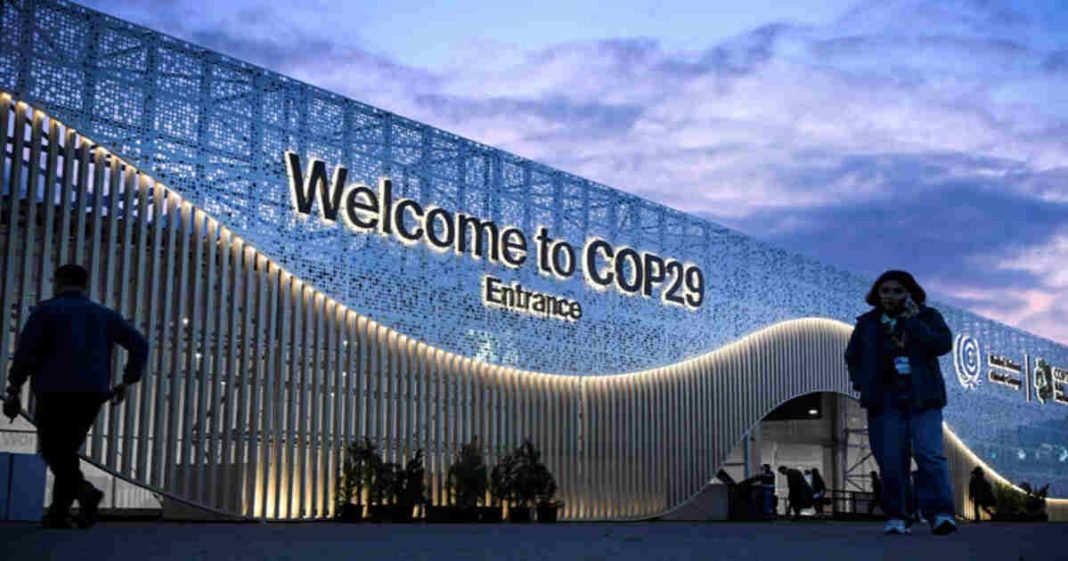The opening of COP 29 in Azerbaijan has been marred by a storm of controversy, threatening the credibility of yet another international climate summit. Elner Sultanov, Deputy Energy Minister of Azerbaijan and Chief Executive of COP 29, has been caught on camera agreeing to facilitate fossil fuel investments during the conference—an exposure that lays bare the summit’s underlying contradictions.
An undercover investigation conducted by the activist group Global Witness captured Sultanov discussing the potential for joint ventures with an individual posing as an investor interested in Azerbaijan’s oil and gas sector. Sultanov did not merely entertain the notion; he expressed enthusiastic support for the deals, describing fossil fuels as central to the global energy mix “perhaps forever.” The revelations paint a damning picture of a conference purporting to address climate change while negotiating fossil fuel interests behind closed doors.
A Pattern of Prioritizing Profits Over Planet
This isn’t the first time the integrity of climate summits has been questioned. At COP 28 in the UAE, leaked documents revealed similar conflicts. Sultan Al Jaber, both the UAE’s climate envoy and chief executive of its national oil company, ADNOC, chaired meetings where oil and gas deals were prioritized. The repeating pattern at COP 29 suggests that global climate diplomacy may be little more than a stage for fossil fuel power plays.
According to the undercover recordings, Sultanov emphasized Azerbaijan’s readiness to accommodate the prospective “investor,” adding that the state-owned oil company, SOCAR, was prepared to initiate discussions immediately. Within hours of the meeting, the fake investor received an email from SOCAR’s senior executive, showcasing an efficiency that climate action itself has failed to match.
The scale of these interactions has reignited calls for the exclusion of fossil fuel lobbyists from COP summits. This year alone, over 1,800 lobbyists associated with oil and gas companies attended COP 29—a figure that dwarfs the presence of climate activists. Their influence has cast a long shadow over the efficacy of these summits, which increasingly appear as platforms for business-as-usual under the guise of climate action.
A Summit Undermined
While COP 29 was set to focus on urgent climate solutions, Sultanov’s endorsement of fossil fuel expansion underscores the entrenched interests of the oil and gas industry. The Intergovernmental Panel on Climate Change (IPCC) has made it unequivocally clear: developing new oil and gas fields is incompatible with the goals set in the Paris Agreement. Yet, despite the supposed global consensus to phase out fossil fuels, the reality of COP summits tells a different story.
The backdrop of Sultanov’s exposure is compounded by a resurgence of climate skepticism on the global stage. Donald Trump’s re-election bid in the U.S. and the ascent of Javier Milei—a radical libertarian president in Argentina—further complicate international climate efforts. Milei’s administration withdrew Argentina’s delegation three days into COP 29, signaling a refusal to accept any obligations that might compromise national interests. Sources indicate that Argentina may consider exiting the Paris Agreement, a move that could trigger a domino effect if the U.S. follows suit.
The stakes are high. The failure to align action with rhetoric at COP 29 may well prove catastrophic for the fragile framework of international climate cooperation. If significant emitters like the U.S. and Argentina abandon their commitments, the pathway to global net-zero targets will become even more elusive.
The Growing Demand for Reform
The recent scandal has bolstered calls for stringent reform. Activists and climate organizations argue that future COP summits must exclude fossil fuel lobbyists to prevent conflicts of interest that compromise climate goals. The overrepresentation of industry advocates and the underrepresentation of grassroots voices have made it clear that the summit’s priorities need recalibration.
As COP 29 unfolds, it serves as both a critical reminder and a stark warning: without substantive change, climate summits risk becoming hollow rituals, where promises are made under the spotlight while deals are struck in the shadows.














